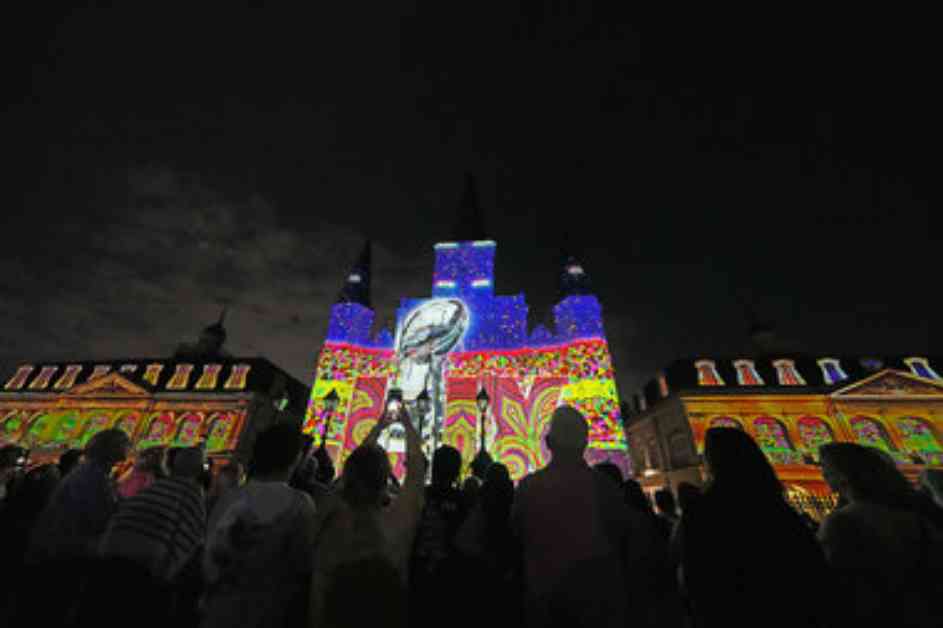New Orleans Bounces Back: A Story of Resilience and Renewal
In the wake of a terror attack that shook the United States, New Orleans is gearing up for the Super Bowl, set to welcome an estimated 125,000 visitors for the epic showdown between the Kansas City Chiefs and the Philadelphia Eagles. The city is already buzzing with excitement, with street revelry painting a vibrant picture of the spirited atmosphere that defines the Big Easy.
The French Quarter, with its world-class Cajun cuisine and lively brass bands, has always been a magnet for partygoers. However, this week is different, as the world’s gaze turns towards the city, with celebrities hosting extravagant parties leading up to the grand event. Mayor LaToya Cantrell, in a press conference, highlighted the city’s commitment to going above and beyond in preparation for its 11th time hosting the Super Bowl.
Stepping Up Security: A City on High Alert
Following the New Year’s Day terror attack, New Orleans has been on high alert, ensuring the safety of residents and visitors alike. The city has spared no effort in ramping up security measures, with police, fire, and emergency services operating at full capacity. In addition, state and federal law enforcement agencies have been mobilized to bolster security efforts.
Former New York Police Commissioner William Bratton has been enlisted as a special security consultant, underscoring the seriousness of the city’s commitment to safety. A public safety app has been launched to provide visitors with essential information, while downtown streets have been partially closed to create an enhanced security zone around the iconic French Quarter. From security checkpoints to concrete barriers, every precaution has been taken to ensure a secure environment for all.
Economic Boom and Community Resilience: The Heartbeat of New Orleans
As the city prepares to welcome football fans from near and far, the economic impact of hosting the Super Bowl cannot be overstated. Alí Bustamante, a director at the Roosevelt Institute, emphasizes the importance of the city’s infrastructure upgrades to accommodate such a massive event. Roads have been repaired, potholes filled, and green spaces beautified in a concentrated effort to revitalize the city’s infrastructure.
In the midst of the Super Bowl fever, the local community is abuzz with anticipation. Street performers like Cornbread set the stage for lively celebrations, with the promise of increased foot traffic and spending driving optimism among residents. Samir Shabib, a cab driver, shares his excitement for the influx of visitors, despite the anticipated challenges of navigating heightened traffic.
Chris Whitfield, an operations manager at a downtown hotel, echoes the sentiment of resilience that defines New Orleans. Despite past hardships, the city has always found a way to bounce back, facing adversity with unwavering determination. Dedra Simpson, moved by the New Year’s Day tragedy, calls for a permanent memorial to honor the victims and stresses the importance of extending the city’s renewal efforts to all neighborhoods in need.
As the city of New Orleans prepares to host the Super Bowl amidst a backdrop of tragedy and triumph, its spirit of resilience shines through. From the vibrancy of the French Quarter to the echoes of jazz music along its streets, New Orleans stands as a testament to the indomitable human spirit in the face of adversity. And as visitors flock to the city for the big game, they are met with a warm welcome and a promise of a memorable experience in a city that refuses to be defined by its challenges.

